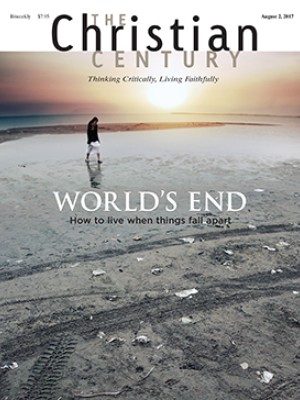Late scholar Peter Berger admitted 'big mistake' as sociologist of religion
Peter Berger, a leading scholar in the sociology of religion, died in Brookline, Massachusetts, on June 27 at age 88 of heart failure.
He was professor emeritus of sociology, religion, and theology at Boston University. His books included The Sacred Canopy: Elements of a Sociological Theory of Religion (1967), A Rumor of Angels: Modern Society and the Rediscovery of the Supernatural (1969), The Heretical Imperative: Contemporary Possibilities of Religious Affirmation (1979), and Questions of Faith: A Skeptical Affirmation of Christianity (2003).
In a 1998 article for the Christian Century, he admitted to having “made one big mistake” in his career. Like many other sociologists of religion in the 1960s, his error “was to believe that modernity necessarily leads to a decline in religion. . . . Most of the world today is as religious as it ever was and, in a good many locales, more religious than ever.”
Read our latest issue or browse back issues.
He also credited himself with “one big insight,” namely, that pluralism changes how our beliefs and values are shaped, leading to a greater sense of choice in those areas and less certainty. Living in such a situation must be done by faith, with acceptance of uncertainty.
“The basic fault lines today are not between people with different beliefs but between people who hold these beliefs with an element of uncertainty and people who hold these beliefs with a pretense of certitude,” he said in a 1997 interview with the Century. “There is a middle ground between fanaticism and relativism.”
Practicing such living with uncertainty, Berger wrote twice for the Century’s How My Mind Has Changed series. In the 1980 article “From secularity to world religions,” he detailed how in the previous decade he had “moved further to the ‘left’ theologically and further to the ‘right’ politically.”
While he became more liberal in his thinking about religion, encounters with global poverty “impressed me with the utter fatuity of the alleged solutions advocated by the political ‘left’” and “prevented me from taking the currently fashionable route of doing theology by baptizing the empty slogans of this or that version of Marxism with Christian terminology.”
In a 1990 installment in the series, he reflected on his relationship to mainline Protestantism. “I encountered this world of the mainline almost immediately upon coming to America not long after World War II. I was young, very poor, European and Lutheran, and wartime desperations had shaped my social and religious sensibilities.”
He found Protestant churches to be thoroughly identified with American middle-class culture, sociologically serving to give that culture legitimacy. “While I was prepared to affirm the goodness of America, I was not prepared to worship it or to equate its morality with Christian faith.”
Decades after that first encounter with the mainline, he found that what remained the same was “the underlying principle of every variety of culture-religion: that the churches should reflect the moral concerns of their social milieu”; and he reserved special criticism for feminism, “a grimly humorless ideology.”
Berger found himself outside of the church as a result of being theologically liberal while rejecting the “left-liberal-liberationist politics that [had] become monopolistically established in non-evangelical Protestantism.”
At the same time, he put his assessment of such trends in broader perspective: “The church will survive until the Lord returns. In its worship today—even where that worship is weak or warped—the church participates in the eternal liturgy of all creation. Nothing can change this.”
A version of this article, which was edited on July 14, appears in the August 2 print edition under the title “People: Peter Berger.” Articles mentioned from before 1998 can be searched for by logged-in magazine subscribers via the EBSCOhost platform on our archives page, found on the left side after scrolling down.






